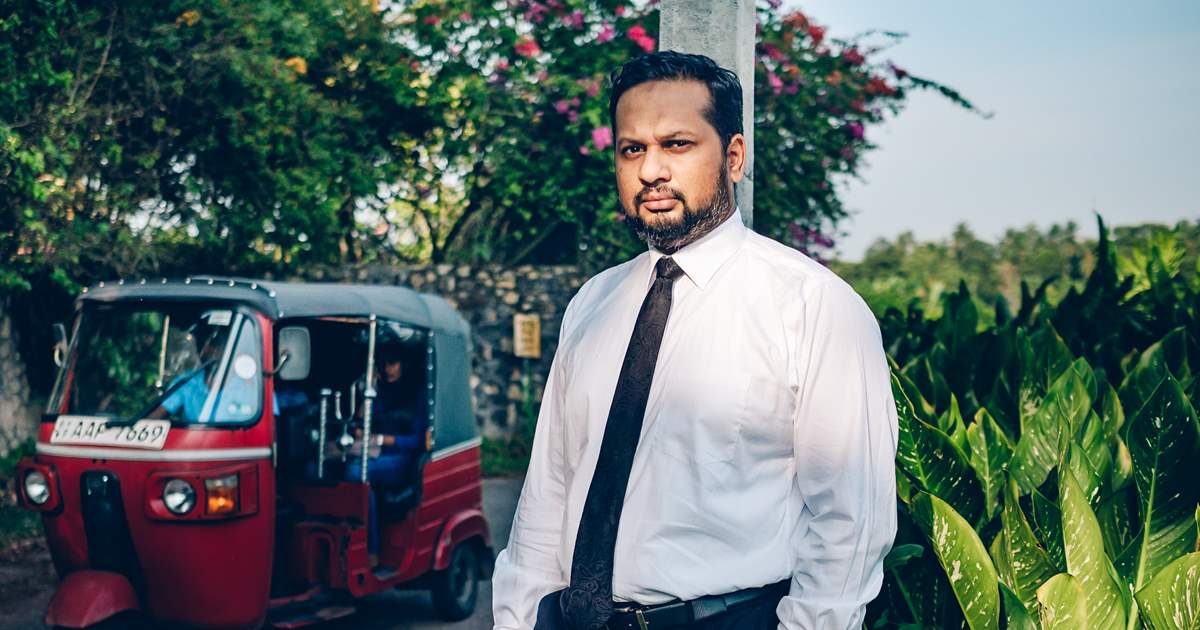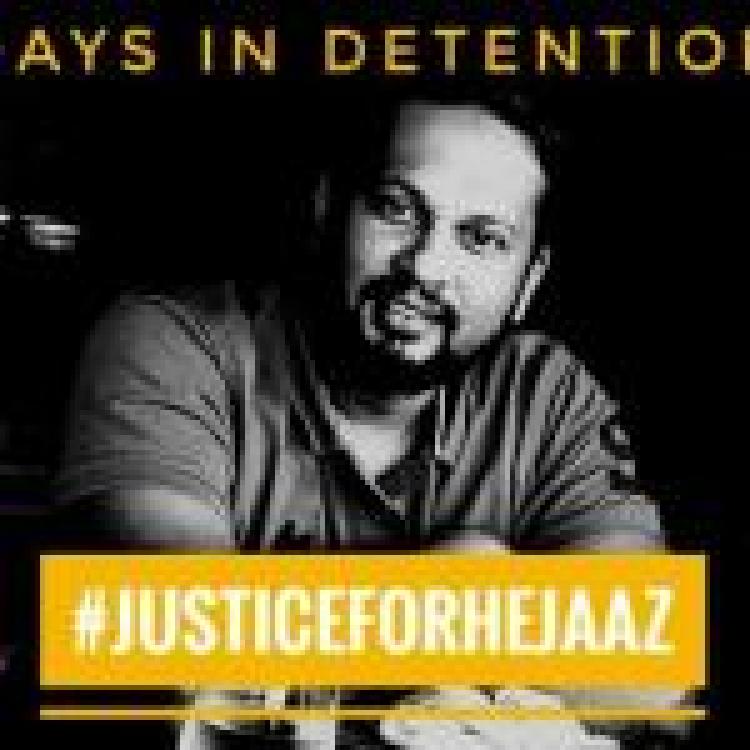
Photograph: Amnesty International
The Bar Human Rights Committee of England and Wales (BHRC) expressed their concern over the “continued unlawful” detention of Muslim lawyer Hejaaz Hizbullah and urged the Sri Lanka government to release him.
The BHRC – which works to sustain human rights laws and standards globally and in the defence of lawyers and others confronted with harassment, persecution, violence and detention – released the statement on Wednesday.
The report noted that Hizbullah, a member of a minority Muslim community in Sri Lanka, may have been “arbitrarily and unlawfully” detained. “He appears to have been targeted in connection with his work as a lawyer in cases challenging the government under the Constitution and hate speech, violence and discrimination against the Muslim community.”
BHRC criticised the case hearing being postponed from 28th October to February 2021 “due to the COVID-19 pandemic” and stressed the “clear risks of remaining in prison during the pandemic”.
Hizbullah, a well-known Muslim lawyer in Sri Lanka, has been unafraid to challenge the Sri Lankan government’s actions. The report notes that “Mr Hizbullah […] has been involved in a number of significant constitutional cases against the government and has acted for the rights of Muslim minorities in the country. He is known for his moderate and reformist views within that community.”
BHRC highlighted that “lawyers, like other citizens, are entitled to freedom of expression, belief, association or assembly.” The arrest of Hizbullah under the heavily-disputed draconien Prevention of Terrorism Act (PTA), was questioned. “No reasons for the arrest were disclosed to him or his family. Some of his case files were removed. He has been detained for more than six months without charge, without being brought before a court, and without meaningful access to legal counsel and family members.”
The report extended on the “vague” reasoning for Hizbullah’s arrest and detention. “The detention of Mr Hizbullah [was cited as] for alleged involvement in the Easter Sunday 2019 terrorist attack in Colombo and for engaging in ‘activities detrimental to religious harmony among communities’.”
The Sri Lankan government had also been accused of not providing sufficient, if any, evidence for his arrest and suggested there was possibly witness coercion. “Subsequent to his arrest, he has also been alleged to have misused a charity, ‘Save the Pearls’, for the indoctrination of children into extremism. Notwithstanding these serious allegations, no evidence has been produced to a court, nor any specific charges formulated against Mr Hizbullah in support of these allegations.”
“In particular, BHRC understands that four children have petitioned the Supreme Court alleging that they were intimidated after Mr Hizbullah’s arrest into making false statements relating to the activities of the charity,” the report added.
Earlier in the year, Hizbullah criticised the prohibition of burials according to Islamic practice by the Sri Lankan state. The ban which the government justified as ‘to help combat the COVID-19 virus’ was denounced by the World Health Organisation stating that persons without COVID-19 were denied the right to be buried following religious practices.
BHRC spoke of the increasingly worrying acts against human rights defenders seen across Sri Lanka in their statement, “BHRC is concerned that the arrest of Mr Hizbullah forms part of a larger trend of using emergency legislation to limit the effectiveness of the work of human rights defenders.”
A joint statement by multiple international human rights organisations including Amnesty International and Human Rights Watch earlier this year, raised concerns over the detention of lawyer Hejaaz Hizbullah under the PTA, and demanded the end of the intimidations of lawyers, activists, human rights defenders, and journalists in Sri Lanka.
The report noted this stating, “On 22 June 2020, six UN Special Rapporteurs also stated their “regret that this case seems to illustrate a broader pattern of discrimination towards the Muslim minority in Sri Lanka” in a communication to the Government.”
The PTA has been widely criticised by the international community as it allows Sri Lanka’s security forces to detain without charge. Although the preceding government claimed a commitment to repealing the law, the current Rajapaksa regime has walked away from such a commitment.
Read the full statement here.


